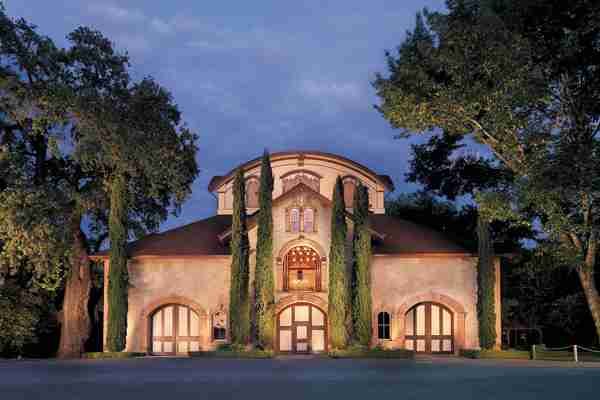What’s with all the secrecy around private label wines?
Not many know about private label wine unless they are in the industry. It’s just not a common topic of conversation.
Beyond knowing they existed, I had no real understanding of the role they play in the retail wine world — a BIG one.

What Are Private Label Wines?
As a consumer, most of the time, you wouldn’t know a wine is a private label. Private label wines are, essentially, store brand wines.
They are wine brands that are created specifically for one retailer, and sold exclusively at that retailer.
Some of the most well-known private labels are Trader Joe’s Charles Shaw (Two Buck Chuck) and Costco’s Kirkland wines. Target (California Roots), Whole Foods (Animist, Criterion, Songbird) Kroger (Parker’s Estate, Acronym) and Wegmans (Cole Cellars, Bon Vivant, Valiant) have their own private labels as well.
Most of these wines are at least drinkable (some more than others), but I’ve never had a private label wine that I thought was outstanding.
Most of the time, private label wines are underwhelming and inconsistent — they are nothing more than bulk wine handsomely re-packaged to look like it was handcrafted in a little boutique winery on the top of a majestic hill, surrounded by roses and lavender.
My issue with private labels is transparency. Ever try to look up a wine and find literally zero information about it?
Who makes this wine? Where is it made? Is that even a place? Does the wine have a website? No? Is there a sign beside the wine that says “available exclusively at xyz retailer”?? Go ahead and bet the farm it’s a private label.
Private labels are a huge and growing part of the wine industry. According to Wine Business, the private label market is now at 8 to 10 percent of market penetration, and growing.
And as more and more private labels take up retail shelf space, that leaves less space for branded wines.
Why Private Label Wine?
Follow the money.
The retailer’s goal is to increase margins and profitability — to make money, and the money is in private labels. Whereas traditional branded wines might deliver margins of 30-35% per bottle, the margins can be as high as 50-55% for private label wines.
And, there’s no competition. You can only buy Two Buck Chuck in one place — competition eliminated.
A lot of folks say private label wines are a win-win-win. Retailers benefit from increased margins, consumers benefit from lower prices, and winemakers benefit because they know they have a place to sell their excess wine.
Customers want to buy good wine at a good price (a “good” price is usually under $10). Customers like private label wines because they are affordable. Win.
Say you’re a large winery. You finish making all your wine, but you have all this juice leftover. What do you do with it?
You sell it to someone who turns around, makes a wine, and slaps their own label on it. At a significant cost reduction. Win.
Bonus win: Distributors like private labels because they are zero risk. The distributor is just the clearinghouse between the winery and the retailer. It’s a guaranteed sale.
Private labels are shrouded in secrecy, and intentionally vague. It’s almost as though retailers don’t want consumers to know they’re buying a private label brand.
National Brand Wine V Private Label Wine
Because wine prices are competitive, some retailers intentionally lose money on national brands. They offer incredibly low prices on national brand wines to get you into the store. Then, once you’re inside and shopping, the sales team steers you toward their private label wines.
For example, Total Wine sells 2,000 wines not available anywhere else, many of them are private label, or “Winery Direct” wines.
Total Wine is frequently criticized for its sales tactics. You know those coupons that Total Wine sends out? The ones that can only be used on Winery Direct wines? Uh-huh. We’ve heard that as an employee, you have sales goals for Winery Direct wines.
A final note: Beware a wine that’s rated only by the store that’s selling it. Wine ratings in general are subjective territory, but retailer-rated wines are particularly dubious.
If a wine has a rating from its own store, you can objectively subtract 5-10 points.
Private Label Wine FAQ
What is a private label wine?
Private label wine is a wine sourced from a wine manufacturer but managed by the retailer. The buyer does not run its own wineries – instead, it contracts out to different wineries for delivery of specific varietals of wine, which it then re-sells under its own label. (Two-buck Chuck)
How much does it cost to make private label wine?
There are zero production costs: As a private label wine brand, you don’t handle production, packaging, or product branding. But you will be fronting costs for marketing and labels.
Is private label wine profitable?
The retailer’s goal is to increase margins and profitability — to make money, and the money is in private labels. Whereas traditional branded wines might deliver margins of 30-35% per bottle, the margins can be as high as 50-55% for private label wines.
Why private label wine?
Money, honey.
Lower prices, higher margin, instant brand awareness and zero competition. Many restaurants claim that their private label wines are some of their customers’ favorites.









